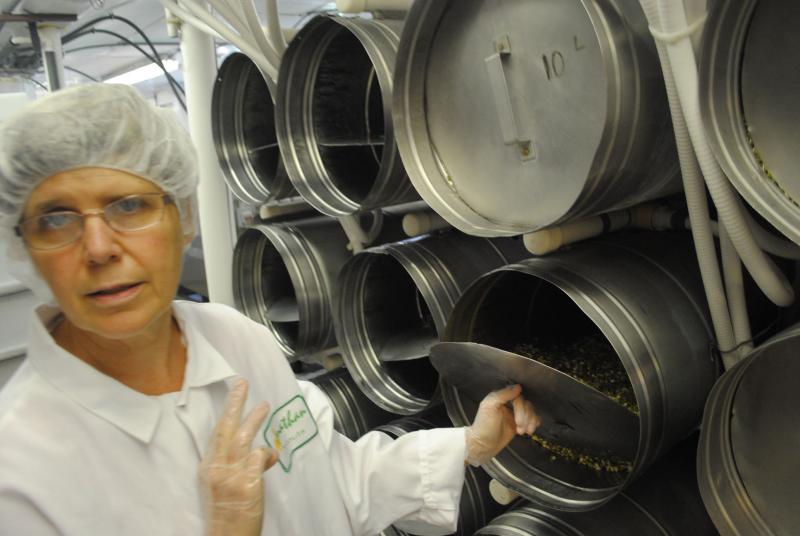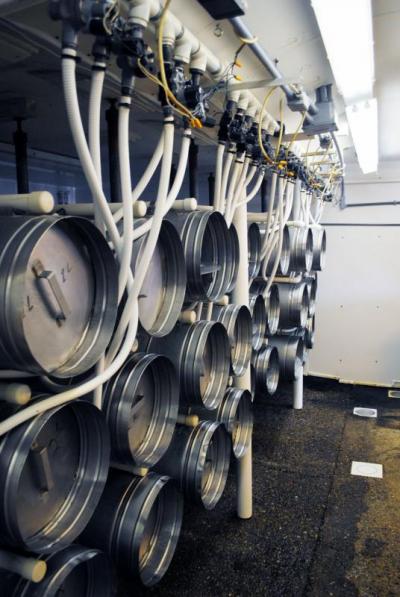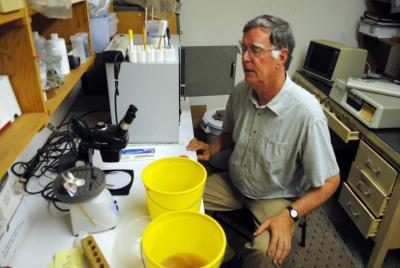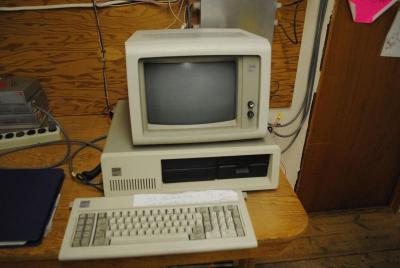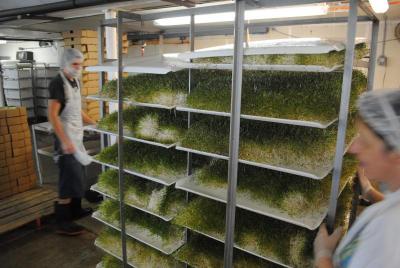Jonathan's Organic sells sprouts, innovation
A grey and red World War I-era barn sits atop a hill outside Rochester, unassuming and with a small sign reading “Jonathan’s Sprouts” at the foot of a gravel driveway. Cars are parked on the east side, out of view. An old entrance sign mounted to an awning shades a door that leads into a network of computer systems, machines and innovative growing techniques. This is the facility of Bob and Barbara Sanderson’s organic sprout business, Jonathan’s Organic, which has been operating for 35 years.
Since its founding Jonathan’s has become a three-million dollar company, selling 20 tons of 20 varieties of sprouts weekly. Big sellers include mung beans, pea shoots, and alfalfa sprouts. New varieties like sunflower greens show promise. The secret to their success?
“The longevity of the business comes from having a niche and providing for it well,” Bob says. “It hasn’t become huge, but it’s been consistent.”
The testing and inspection doesn’t hurt either. Many of the seeds are shipped in from all over the world and thoroughly cleaned and filtered using techniques developed by the Sanderson’s. An independent lab also does testing before any product is shipped. Unfortunately this spring, traces of Salmonella were found in some alfalfa sprout products, causing a recall. It was an unusual event for the company, which has had an excellent health record for the past 35 years.
“The recall taught me that our testing systems didn’t compare to the ones in the labs,” Bob says. “That bothers me. We’re trying to develop better testing. The sprout industry is unique in that there isn’t a defined process for sterilization.”
That is something Sanderson is working on. Using a process of selective extraction, Bob believes by using recycled water continuously with new plants, beneficial organisms will adapt and repel contaminated seeds.
“It’s an area with some research, but not much,” Bob says. “I hope to see more and what I’m doing is very basic. It would be my hope that if you brought in seed from a farm environment and mix it with a sprouting environment, the sprout organisms that would out-compete the farm ones.”
Jonathan’s proven success is apparent in its distribution as well. Two trucks ship products from the Rochester and Freetown facilities within a 75-mile radius, according to Sanderson. These products end up at supermarkets like Shaw’s, Stop & Shop, and Trader Joe’s. After being sent to market warehouses Jonathan’s sprouts can end up all over the country.
Ironically, the barn’s watering system is still run by an early 80s IBM computer. It just adds to that mindset of simplicity Jonathan’s has stood by for 35 years.
“I think it’s going to develop more,” Bob says. “We’ve done very well so far.”



